Benjamin Robbins
Using Machine Learning at Scale in HPC Simulations with SmartSim: An Application to Ocean Climate Modeling
Apr 13, 2021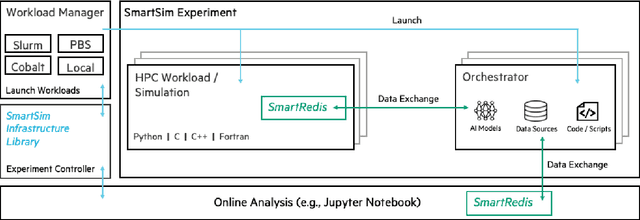
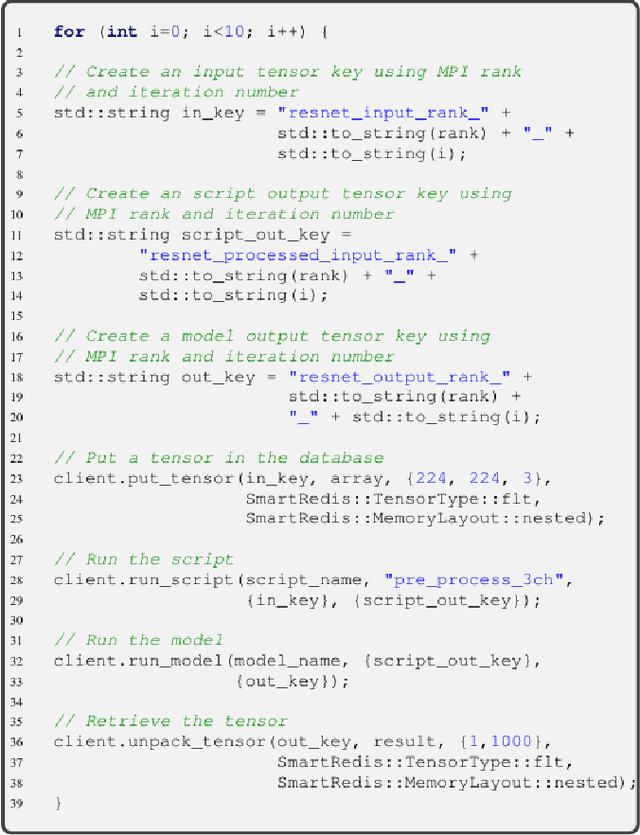
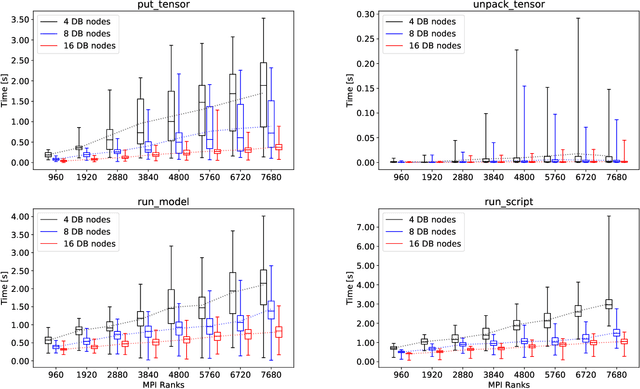

Abstract:We demonstrate the first climate-scale, numerical ocean simulations improved through distributed, online inference of Deep Neural Networks (DNN) using SmartSim. SmartSim is a library dedicated to enabling online analysis and Machine Learning (ML) for traditional HPC simulations. In this paper, we detail the SmartSim architecture and provide benchmarks including online inference with a shared ML model on heterogeneous HPC systems. We demonstrate the capability of SmartSim by using it to run a 12-member ensemble of global-scale, high-resolution ocean simulations, each spanning 19 compute nodes, all communicating with the same ML architecture at each simulation timestep. In total, 970 billion inferences are collectively served by running the ensemble for a total of 120 simulated years. Finally, we show our solution is stable over the full duration of the model integrations, and that the inclusion of machine learning has minimal impact on the simulation runtimes.
Recombination of Artificial Neural Networks
Jan 12, 2019

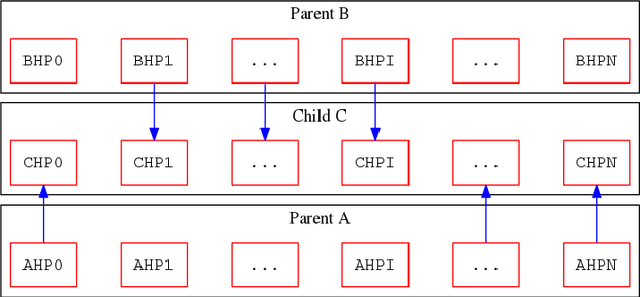
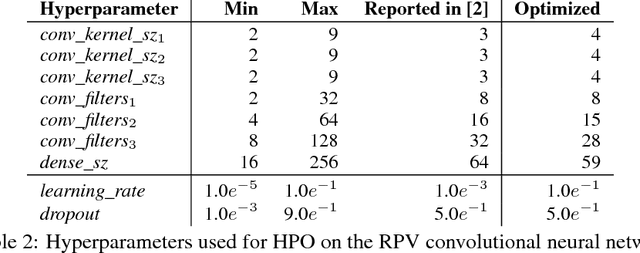
Abstract:We propose a genetic algorithm (GA) for hyperparameter optimization of artificial neural networks which includes chromosomal crossover as well as a decoupling of parameters (i.e., weights and biases) from hyperparameters (e.g., learning rate, weight decay, and dropout) during sexual reproduction. Children are produced from three parents; two contributing hyperparameters and one contributing the parameters. Our version of population-based training (PBT) combines traditional gradient-based approaches such as stochastic gradient descent (SGD) with our GA to optimize both parameters and hyperparameters across SGD epochs. Our improvements over traditional PBT provide an increased speed of adaptation and a greater ability to shed deleterious genes from the population. Our methods improve final accuracy as well as time to fixed accuracy on a wide range of deep neural network architectures including convolutional neural networks, recurrent neural networks, dense neural networks, and capsule networks.
 Add to Chrome
Add to Chrome Add to Firefox
Add to Firefox Add to Edge
Add to Edge